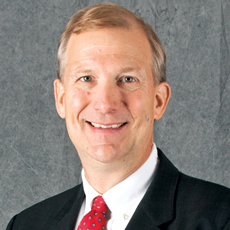
Is it too much to expect perfection out of long-term care providers? We may soon find out.
I fear that we may be in the midst of a damaging cycle driven by unrealistic expectations, and Hurricane Dorian is going to show us why.
As providers in Florida can fully attest, they are receiving a huge amount of attention lately. The focus is on how they are coping with Dorian, which approached the state with full and fair warning this week.
One only has to look at the expansive coverage in Tuesday’s New York Times (“Hurricane Dorian Tests Floriday’s Ability to Move Older Adults Out of Harm’s Way”) to see how seriously the rest of the country is watching. The piece is actually fairly flattering about senior care operators and the agencies that oversee them. While Dorian’s reluctance to truly wallop the U.S. mainland has been no small factor, long-term care stakeholders have been on their best behavior and executed evacuation plans early and well by all accounts. When shortcomings such as lack of back-up equipment have been detected, special measures have been taken.
It goes to show what a major dollop of bad publicity can do. It was just two years ago when one operator didn’t provide back-up power to supply lifesaving air-conditioning after Hurricane Irma. That resulted in 12 deaths, lawsuits and loads of scathing reviews by the public and various media affiliates.
Industry leaders rightly pointed out that the sins of a single operator were smearing thousands of other mindful, safe caregivers. McKnight’s dutifully noted the provider’s legal woes but also highlighted numerous cases of caregiving gone right.
Yet in the eyes of mainstream America, a stain was permanently attached. Laws were passed, safety regulations toughened — and as of this writing, everything appears to have gone well in responding to the dangers affiliated with Dorian.
Georgia and the Carolinas were next in line, but by all accounts, caregivers there — who had heard plenty about the deadly Irma debacle — were not going to become the new poster children for unprepared, legally vulnerable providers.
As always, however, we have to wait until the storm passes and then assess repercussions. It is assured there will be physical damage in various parts of the Southeast. But how will its elderly population, and its senior residents in particular, fare in the long run?
Will there be deaths attributed to moving old, frail people out of Dorian’s way? Will there be blame-gaming for these deaths, as proponents of sheltering in place so often warn? Will Mother Nature override any man made precautions anyway? How many more residents would have died if they had not been evacuated? And how many would have passed no matter where they were?
These are all questions that will be asked and examined in the months ahead. We can be sure of that. At the end of that period, it will be interesting to see if providers will still be vilified for how they handled hurricane prep and reaction.
If they are slammed, it will be a sign — another sign, some would say — that the public believes that nothing less than perfection is acceptable from providers, mere mortals that they be.
And then another question would need to be asked: Is that too much to expect?
Follow Executive Editor James M. Berklan @JimBerklan.



